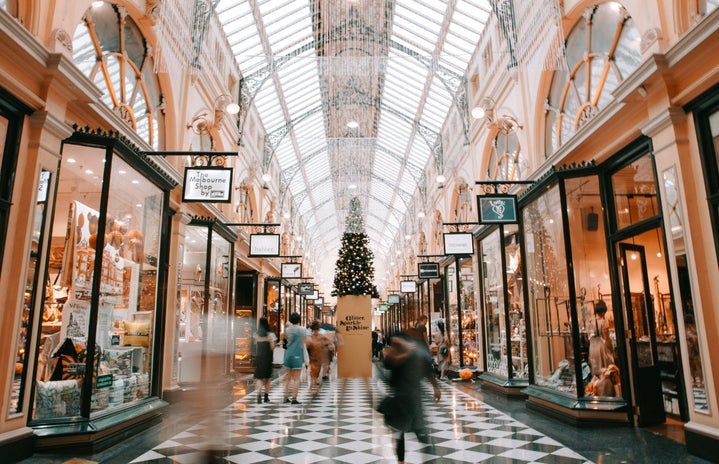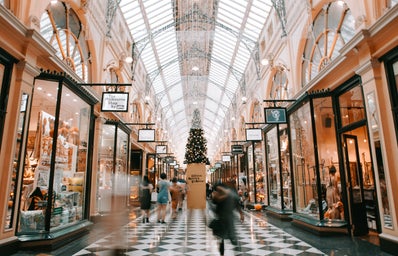On May 25, 2020, the entire world watched as officer Derek Chauvin pressed his knee into the neck of George Floyd, taking his life, while three other officers stood by and did nothing.
Consequently, Black Americans took to the streets to protest and have their voices heard. Change was demanded not just from law enforcement, but also from the schools, workplaces, and businesses where we shop. According to Newswise, Black Americans buying power was estimated to be $1.3 trillion dollars in 2018, mostly due to an increase in Black-owned business, population growth, and higher levels of education. However, if Black Americans are spending this much money, then why is it that Black-owned businesses only generated $150 billion in revenue? Aurora James asked the same question, which is why she created the 15 Percent Pledge, a groundbreaking promise to shelf more Black-owned labels in stores.
On May 29, James, founder and creative director of fashion brand Brother Vellies, took to Instagram with a post entitled, “Ok, here is one thing you can do for us…” Within that post, there was a demand for multi-brand retailers across the country: dedicate 15% of their shelf spaces to Black-owned brands. The 15% stems from the fact that Black Americans roughly make up 15% of America’s population. The pledge is not just aimed towards retailers, but it is also aimed towards grocers, banks, and other businesses. So far, West Elm, Sephora, Vogue, and Yelp have signed the pledge. It is shocking that so many big retailers do not already have 15% of Black-owned businesses, and looking at the numbers cement. Sephora carries seven Black-owned brands out of around 300, Target carries around 20 brands and just recently created a “Black Owned or Founded Brand” sticker to go beneath those products on the app, and more have numbers so dismal that they can not be located online.
James is not alone in her quest for more Black representation at major companies. Sharon Chuter, founder of Pull Up for Change, is demanding that beauty companies hire more Black employees in influential positions. She said, “You can’t tell us Black Lives Matter publicly when you don’t show us that Black lives matter within your own homes and organizations.” Brands such as Estee Lauder and Kylie Beauty have pulled up and showed transparency in their numbers. Estee Lauder has only 12% of black representation, with 3% at an executive director level and above and 14% being executive officers.
The future of retail is rapidly changing. It is not just enough to create lists of Black-owned businesses or to only shop Black-owned once a year. It’s about accountability, and, for Black people, it is about being cautious with the businesses where we shop. There are important questions to be asked – am I represented within this store?, could I walk out of here with a full bag of Black-owned products?, or do I see people who look like me working here at all levels? Obviously, this change won’t happen overnight, and even James knows this. However, she does not think that should stop businesses from trying. She said, “You can take the brave and vital step of owning where you are at and being proactive in claiming that you plan to be part of the solution.”
All consumers are invited to join the pledge themselves. Learn more about the Consumer Commitment and James’ 15 Percent Pledge here.



